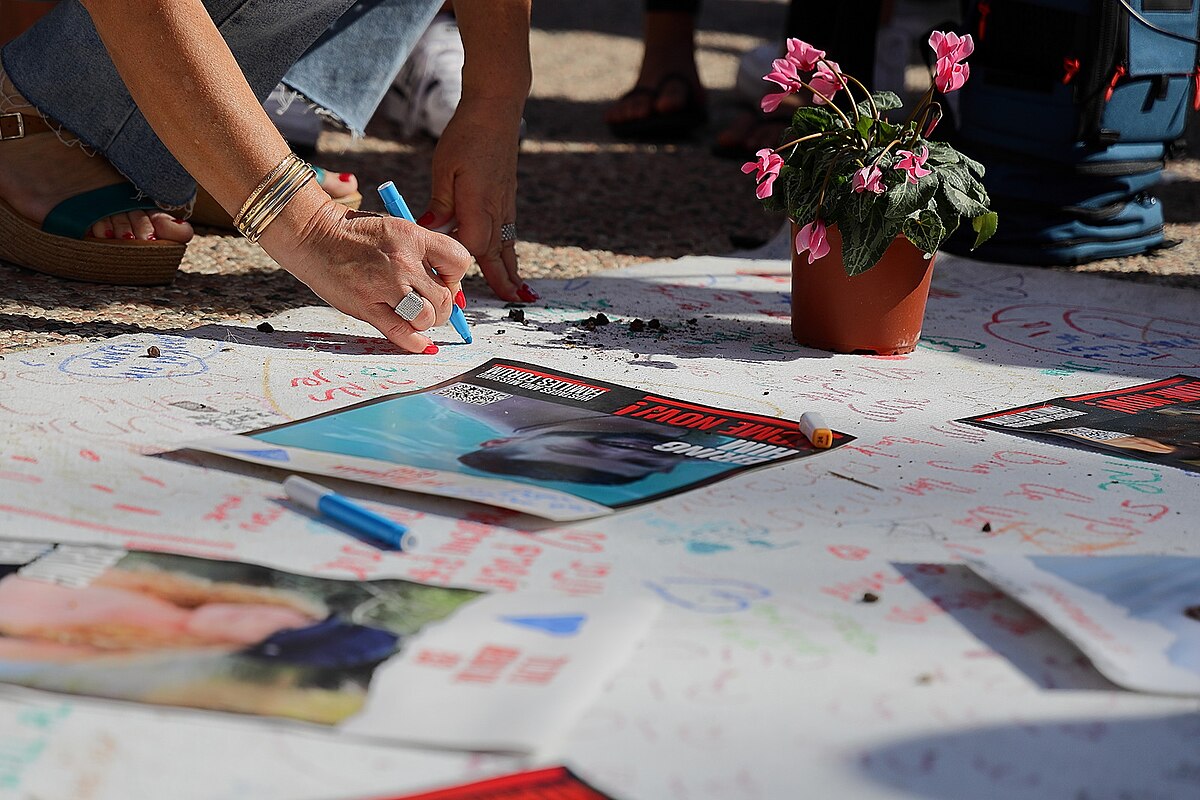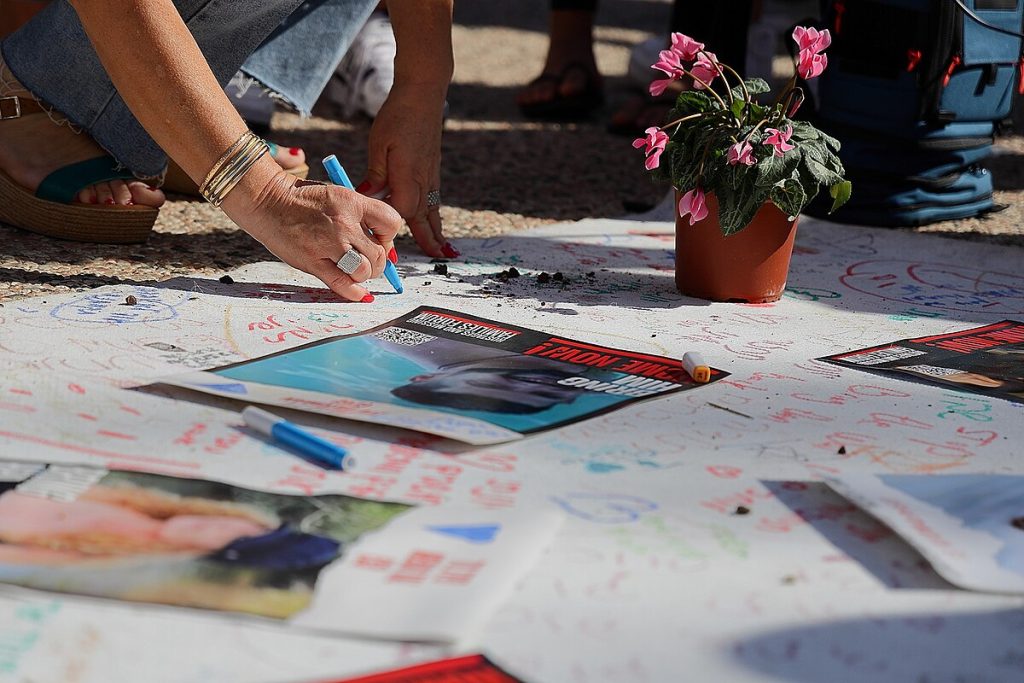The values of us all
International humanitarian law forbids neither resistance nor self-defence. But it does set strict limitations on any party that engages in armed conflict. Both Hamas’s and Israel’s defiance of jus in bello is an assault on universal values.


Being half-Jewish and half-Palestinian has one undoubted benefit: it teaches a young girl that peace is not a pipe dream and that any marriage, no matter how complicated, can be saved. However, coexistence between peoples is rather like a family meal; it can only be enjoyed if the norms are followed.
The Israeli–Palestinian conflict is an apt example of the inherent fragility of the standards that regulate global affairs. Because international law is inherently discretionary, it is absolutely irrelevant whether the rules of the game are followed or not. State hegemony over the tools developed by the world to foster peace turns everyone’s supper into a tragedy.
The dynamics between Hamas and Israel, in particular, seek out alternative spaces to the norm and are fuelled by stories that twist the facts. Both sides use people’s suffering to advance their own causes.
Hamas distorts the nature of the fight by imbuing it with a religiosity that does not accurately reflect the Palestinian position. It is important to remember that Palestinians profess to more than one religion; since all are monotheistic, the only thing that unites them is the uniqueness of the God they believe in, and the name with which they address him. Before Hamas, which until the war was polling at less than 30%, Palestinian politics had been notoriously secular.

Writing to the kidnapped. Image: Lizzy Shaanan, via Wikimedia Commons
The Israeli government, on the other hand, uses Jewish history to justify ethnic cleansing. Two things are happening here: first, the world is being encouraged to ignore the fact that the Palestinian people have been under occupation for 75 years; second, the 7 October tragedy is being associated with the Holocaust to justify the massacre of another population. This not only disregards common understandings of historical causality – thereby breaking with Jewish tradition, which is intrinsically linked to the practice of looking backwards through time to make sense of the present – it also links all Jews to Israel’s unjust and illegal behaviour, thereby exposing them to a revival of antisemitism.
Law and context
The complexity at the heart of this conflict causes many to reduce the issue to a match in which one must pick a side, without understanding what is fundamental: that the international community takes these two peoples by the hand and guides them towards a coexistence governed by rules that they must accept and live by, like it or not. But for this coexistence to be feasible in the first place, there needs to be recognition of the humanity of every individual on both sides.
What occurred on 7 October must be strongly and emphatically condemned. International humanitarian law does not forbid resistance, nor does it prevent a nation’s self-defence, within the limits of humanity, distinction, precaution and proportionality, all of which aim to reduce the impact of war on civilians. But it does impose strict restrictions on any party that engages in armed conflict.
Belligerent parties are forbidden from using unlimited power and are required to minimize suffering throughout. Jus in bello, or laws during war, applies regardless of the rationale or justice of the causes for which they are fighting, and it tries to safeguard victims of armed conflicts regardless of allegiance. As a result, civilians must always be protected under all circumstances.
This did not occur on 7 October. The Hamas attacks caused civilian casualties, including the deaths of women, children and the elderly, and the destruction of non-military targets in residential villages. In abducting civilians, Hamas violated the principle of distinction, which forbids taking civilian hostages. Even in the case of prisoners of war, the principle of humanity in the treatment of detainees is to be respected. The murder and abuse of civilian hostages by Hamas defied these principles completely.
But is impossible to discuss the 7 October act without noting some other essential facts of international law. Military occupation is understood to be a transitory situation and there are rules governing an occupier’s behaviour. Above all, the occupier must ensure the occupied state’s sovereignty. This principle interacts with human rights and associated treaties to produce a number of obligations upon the occupying state regarding the protection of the rights of the local population.
These obligations include a prohibition on taking actions to significantly influence the legal system, as well as the economic, political and social conditions in the occupied region. The occupying state must oversee the orderly conduct of civil life in the territory under its control in order to safeguard the local population.
For years, Israel has argued that the Gaza Strip is not under occupation because it has been empty of Israeli colonies since 2005. International law, on the other hand, understands the situation in the Strip quite differently: Israel controls its land borders, marine trade, air traffic, all imports and exports, and all human mobility. As a result, international law considers the Gaza Strip to be under Israeli occupation.
What António Guterres was trying to convey when he said that the events of 7 October did not occur in a vacuum is that by contextualizing events we can grasp their origins, appreciate their complexities, and plan strategies to reverse negative trends or consolidate positive ones. Explaining does not imply legitimizing, and in this case it does not reduce the gravity of Hamas’s crimes or provide them with a justification.
Rights and responsibilities
We should be cautious about analogies with the past meant to appeal to emotion and anxiety that do not acknowledge the intricacies inherent in recent history. The charge of antisemitism, if imputed to any criticism of the Israeli state’s behaviour, risks becoming a restriction of freedom of speech.
The president of Yad Vashem, Dani Dayan, said he was horrified ‘to see members of the Israeli delegation to the United Nations wearing the yellow star’, adding that ‘the yellow patch symbolizes the helplessness of the Jewish people and being at the mercy of others. Today we have an independent country and a strong army.’
Indeed, the Israeli of today is not the Jew of a century ago. All the conditions have been created for Jews to exercise their dignity with their heads held high in front of the rest of the world. Israel is a nuclear power backed by a global superpower. But power also comes with responsibility.
Being the master of one’s own destiny is no small thing; it confers not only the right to wage war, but also the obligation to think clearly and critically about what type of war that is, whether it is morally legitimate and, in Israel’s case, whether it is aimed at strengthening or weakening the values that have underpinned its existence for 75 years. It would be a tragedy if the principles that resulted in the constitution of the State of Israel after the Holocaust failed to prevent genocide against other populations.
Between 7 October and 2 November, Israel dropped more than 25,000 tons of explosives on the Gaza Strip, the equivalent of two nuclear bombs in an area of 360 square kilometres (less than half the size of Hiroshima). Furthermore, Israel has been accused of using internationally illegal weapons in its attacks on Gaza, particularly cluster and phosphorus bombs, which cause severe second and third-degree burns.
The death toll has now surpassed 12,000 and numerous military and government figures’ political comments demonstrate genocidal intent: the desire to raze the Strip to the ground and free Israel from the Palestinians has been declared several times. In recent weeks, Israeli media have published documents proving the government’s determination to evacuate the Strip and forcefully deport all Gaza’s residents to Sinai. Israel has now ordered the evacuation of the southern half of the Gaza Strip.
Fuelling extremism
Once again, there is a lack of foresight. The violence is not only brutal and illegal, but it will have far-reaching implications on many levels.
It has the potential to reawaken antisemitic attitudes in the wake of growing global outrage over Israel’s atrocities against Palestinians in Gaza, as well as to drastically reverse Israel’s process of normalization and integration in an area where the Jewish state must coexist with countries that have long been hostile.
As in Bush’s war, Israel’s response pits western values against Islamic values, fuelling extremism at the expense of moderation. The escalation of the conflict through the intentional humiliation of certain ethnic and religious identities will only lead to greater extremism.
The scope of this war is currently expanding. It does not have to comprise regular armies. What should frighten governments now is not violence between sovereign states so much as the discontent of moderates who, abandoned and humiliated by their elected leaders’ shameful silence, are easily exploited by radical forces. Instead of denying extremists of oxygen, Israel, Palestine and the West in general is helping them to spread.
The guidelines the international community has given itself are extremely important. But unless they are universally applied, unless we are willing to honour and protect them always, without exceptions, the fundamental principles of the United Nations Charter are doomed to lose meaning.












